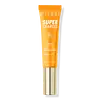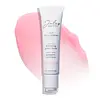What's inside
What's inside
 Key Ingredients
Key Ingredients

 Benefits
Benefits

 Concerns
Concerns

 Ingredients Side-by-side
Ingredients Side-by-side

Diisostearyl Malate
EmollientBis-Diglyceryl Polyacyladipate-2
EmollientTridecyl Trimellitate
EmollientPolybutene
Hydrogenated Polyisobutene
EmollientButyrospermum Parkii Butter
Skin ConditioningMicrocrystalline Wax
Emulsion StabilisingIsostearyl Alcohol
EmollientSynthetic Wax
AbrasiveSilica Silylate
EmollientEthylene/Propylene/Styrene Copolymer
Carthamus Tinctorius Seed Oil
MaskingCurcuma Longa Root Extract
MaskingCaprylic/Capric Triglyceride
MaskingCitrus Sinensis Peel Extract
PerfumingCitrus Aurantium Dulcis Peel Extract
Emulsion StabilisingPanax Ginseng Root Extract
EmollientButylene/Ethylene/Styrene Copolymer
Tocopheryl Acetate
AntioxidantPolyglyceryl-2 Triisostearate
EmulsifyingSodium Saccharin
MaskingDehydroacetic Acid
PreservativeButylene Glycol
HumectantAroma
Limonene
PerfumingCitral
PerfumingCinnamal
PerfumingBenzyl Benzoate
AntimicrobialLinalool
PerfumingBHT
AntioxidantAluminum Hydroxide
EmollientCI 77891
Cosmetic ColorantCI 19140
Cosmetic ColorantCI 15985
Cosmetic ColorantDiisostearyl Malate, Bis-Diglyceryl Polyacyladipate-2, Tridecyl Trimellitate, Polybutene, Hydrogenated Polyisobutene, Butyrospermum Parkii Butter, Microcrystalline Wax, Isostearyl Alcohol, Synthetic Wax, Silica Silylate, Ethylene/Propylene/Styrene Copolymer, Carthamus Tinctorius Seed Oil, Curcuma Longa Root Extract, Caprylic/Capric Triglyceride, Citrus Sinensis Peel Extract, Citrus Aurantium Dulcis Peel Extract, Panax Ginseng Root Extract, Butylene/Ethylene/Styrene Copolymer, Tocopheryl Acetate, Polyglyceryl-2 Triisostearate, Sodium Saccharin, Dehydroacetic Acid, Butylene Glycol, Aroma, Limonene, Citral, Cinnamal, Benzyl Benzoate, Linalool, BHT, Aluminum Hydroxide, CI 77891, CI 19140, CI 15985
Diisostearyl Malate
EmollientBis-Diglyceryl Polyacyladipate-2
EmollientHydrogenated Polyisobutene
EmollientButyrospermum Parkii Butter
Skin ConditioningSynthetic Wax
AbrasiveCera Microcristallina
Emulsion StabilisingMica
Cosmetic ColorantIsostearyl Alcohol
EmollientHelianthus Annuus Seed Oil
EmollientAroma
Ethylhexyl Palmitate
EmollientEthylene/Propylene/Styrene Copolymer
Tocopheryl Acetate
AntioxidantDimethicone
EmollientTricholoma Matsutake Extract
Skin ConditioningTribehenin
EmollientDehydroacetic Acid
PreservativeButylene/Ethylene/Styrene Copolymer
Sorbitan Isostearate
EmulsifyingSodium Saccharin
MaskingPolyglyceryl-2 Diisostearate
EmulsifyingLimonene
PerfumingPalmitoyl Tripeptide-8
Skin ConditioningTitanium Dioxide
Cosmetic ColorantCI 15850
Cosmetic ColorantDiisostearyl Malate, Bis-Diglyceryl Polyacyladipate-2, Hydrogenated Polyisobutene, Butyrospermum Parkii Butter, Synthetic Wax, Cera Microcristallina, Mica, Isostearyl Alcohol, Helianthus Annuus Seed Oil, Aroma, Ethylhexyl Palmitate, Ethylene/Propylene/Styrene Copolymer, Tocopheryl Acetate, Dimethicone, Tricholoma Matsutake Extract, Tribehenin, Dehydroacetic Acid, Butylene/Ethylene/Styrene Copolymer, Sorbitan Isostearate, Sodium Saccharin, Polyglyceryl-2 Diisostearate, Limonene, Palmitoyl Tripeptide-8, Titanium Dioxide, CI 15850
Ingredients Explained
These ingredients are found in both products.
Ingredients higher up in an ingredient list are typically present in a larger amount.
Aroma refers to an ingredient, or mixture of ingredients, that impart or mask a flavor.
The name is slightly confusing. This is because INCI associates aroma with flavor instead of smell.
Here is the official definition from the The International Cosmetic Ingredient Dictionary and Handbook:
“Aroma is a term for ingredient labeling used to identify that a product contains a material or combination of materials normally added to a cosmetic to produce or to mask a particular flavor.”
INCI shows the only purpose of aroma to be "flavouring".
However, due to regulation differences, some companies may use aroma in place of parfum.
In Canada, this ingredient only has to be listed in concentrations above 1%.
Learn more about AromaThis ingredient is lipid-based synthetic skin-conditioning agent derived from adipic acid and a mixture of fatty acids. It is often called a lanolin substitute.
As an emollient, it helps soften and hydrate the skin. Emollients create a barrier on the skin to trap moisture in.
Due to its fatty acid base, it may not be Malassezia folliculitis safe.
Learn more about Bis-Diglyceryl Polyacyladipate-2We don't have a description for Butylene/Ethylene/Styrene Copolymer yet.
This ingredient is also known as shea butter. It is an effective skin hydrator and emollient.
Emollients help soothe and soften your skin. It does this by creating a protective film on your skin. This barrier helps trap moisture and keeps your skin hydrated. Emollients may be effective at treating dry or itchy skin.
Shea butter is rich in antioxidants. Antioxidants help fight free-radicals, or molecules that may harm the body. It is also full of fatty acids including stearic acid and linoleic acid. These acids help replenish the skin and keep skin moisturized.
While Shea Butter has an SPF rating of about 3-4, it is not a sunscreen replacement.
Shea butter may not be fungal acne safe. We recommend speaking with a professional if you have any concerns.
Learn more about Butyrospermum Parkii ButterDehydroacetic Acid is fungicide and bactericide. It is used as a preservative in cosmetics. Preservatives help elongate the shelf life of a product.
Dehydroacetic Acid is not soluble in water.
Diisostearyl Malate is an emollient and most often used in lip products. It comes from isostearyl alcohol, a fatty acid, and malic acid, an AHA.
As an emollient, Diisostearyl Malate helps create a thin film on your skin to trap moisture in. This helps keep your skin soft and smooth.
We don't have a description for Ethylene/Propylene/Styrene Copolymer yet.
Hydrogenated Polyisobutene is a synthetic polymer. Polymers are compounds with high molecular weight. Hydrogenated Polyisobutene is an emollient and texture enhancer.
In one study, Hydrogenated Polyisobutene showed better skin hydration levels than Caprylic/Capric Triglyceride. As an emollient, it helps keep your skin soft and hydrated by trapping moisture in.
Hydrogenated Polyisobutene is often used as a mineral oil replacement.
Learn more about Hydrogenated PolyisobuteneA type of fatty alcohol. Fatty Alcohols are most often used as an emollient or to thicken a product. They are usually derived from natural fats and oils and therefore do not have the same drying or irritating effect as traditional alcohols.
Limonene is a fragrance that adds scent and taste to a formulation.
It's found in the peel oil of citrus fruits and other plants such as lavender and eucalyptus. The scent of limonene is generally described as "sweet citrus".
Limonene acts as an antioxidant, meaning it helps neutralize free radicals.
When exposed to air, oxidized limonene may sensitize the skin. Because of this, limonene is often avoided by people with sensitive skin.
The term 'fragrance' is not regulated in many countries. In many cases, it is up to the brand to define this term. For instance, many brands choose to label themselves as "fragrance-free" because they are not using synthetic fragrances. However, their products may still contain ingredients such as essential oils that are considered a fragrance.
Learn more about LimoneneWe don't have a description for Sodium Saccharin yet.
Synthetic Wax is created from fossil fuels such as natural gas. It is used to enhance texture, adjust pH, and as an occlusive.
It may also be used as an abrasive ingredient to exfoliate the skin.
Synthetic Wax may not be fungal acne safe.
Learn more about Synthetic WaxTocopheryl Acetate is AKA Vitamin E. It is an antioxidant and protects your skin from free radicals. Free radicals damage the skin by breaking down collagen.
One study found using Tocopheryl Acetate with Vitamin C decreased the number of sunburned cells.
Tocopheryl Acetate is commonly found in both skincare and dietary supplements.
Learn more about Tocopheryl Acetate